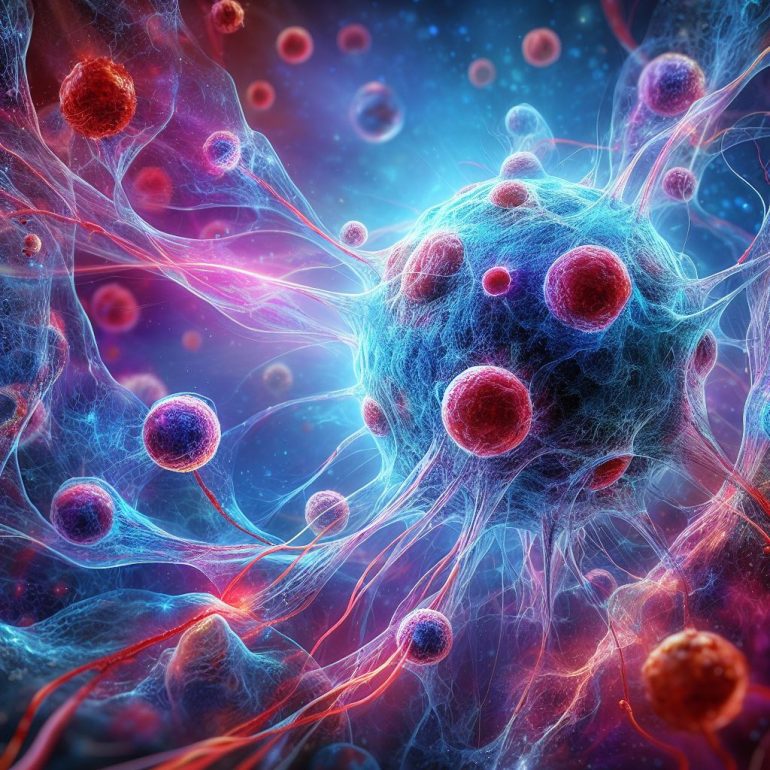- San Francisco scientists are using artificial intelligence to enhance cancer treatment research.
- Dr. Deepak Srivastava from the Gladstone Institutes highlights the ability to conduct millions of simulations with AI before physical experiments.
- The research focuses on skin cancer and colorectal cancer, which are major concerns in the U.S.
- The goal is to identify key drivers of cancer from random cellular errors using AI and machine learning models.
- AI is being utilized to improve T cell therapy through CRISPR genome editing, with a vision to shorten the timeline to clinical trials.
- The Gladstone Institutes have secured a $5 million grant from the Biswas Family Foundation to support this research.
Main AI News:
Artificial intelligence is revolutionizing various fields, from automotive to computer engineering, and now, it’s making significant strides in cancer research. Scientists in San Francisco are employing AI to identify the most effective treatments for cancer.
Dr. Deepak Srivastava, president of the Gladstone Institutes, emphasizes the potential of this technology: “For the first time, we can use AI to conduct millions, if not billions, of simulations in silico before initiating any physical experiments aimed at targeting cancer cells.” The Gladstone Institutes are at the forefront of this innovation, exploring how AI can optimize experimental approaches to combat cancer more effectively.
The focus of their research is to tackle skin cancer, the most prevalent cancer type in the U.S., and colorectal cancer, which ranks as the second leading cause of cancer deaths. Dr. Katie Pollard, director of the Gladstone Institute of Data Science and Biotechnology, outlines their strategy: “Cancer cells accumulate numerous random errors, but only a few drive the disease. Our objective is to identify these key drivers from the background noise.”
Pollard leads the AI-driven initiative, which includes using machine learning models to uncover patterns in cancer cell behavior. “By distinguishing these drivers, we can design more precise and impactful experiments,” Pollard explains.
This effort is deeply personal for Pollard, who cites her own patient experiences and those of her family as motivators. “We need to accelerate our progress. If we can expedite even slightly, we could make a profound difference in patients’ lives,” she adds.
AI is also being used to enhance T cell therapy. Blood samples are taken from patients, and their immune cells are modified using CRISPR technology before being reintroduced to fight cancer more effectively. This method aims to shorten the typically long path to clinical trials, with a goal of developing new trial designs within five years to address previously untreatable cancers.
The Gladstone Institutes have received a $5 million grant from the Biswas Family Foundation to support this pioneering research.
Conclusion:
The integration of artificial intelligence in cancer research by San Francisco’s Gladstone Institutes represents a significant advancement in medical science. By leveraging AI to simulate and analyze vast amounts of data, researchers aim to accelerate the development of more effective treatments and therapies. This approach could substantially shorten the typical research timeline, potentially leading to faster clinical trial phases and earlier availability of novel treatments. The investment and innovation in AI-driven cancer research underscore a growing trend in the market towards utilizing advanced technologies to tackle complex medical challenges, offering hope for more targeted and effective cancer treatments in the near future.

